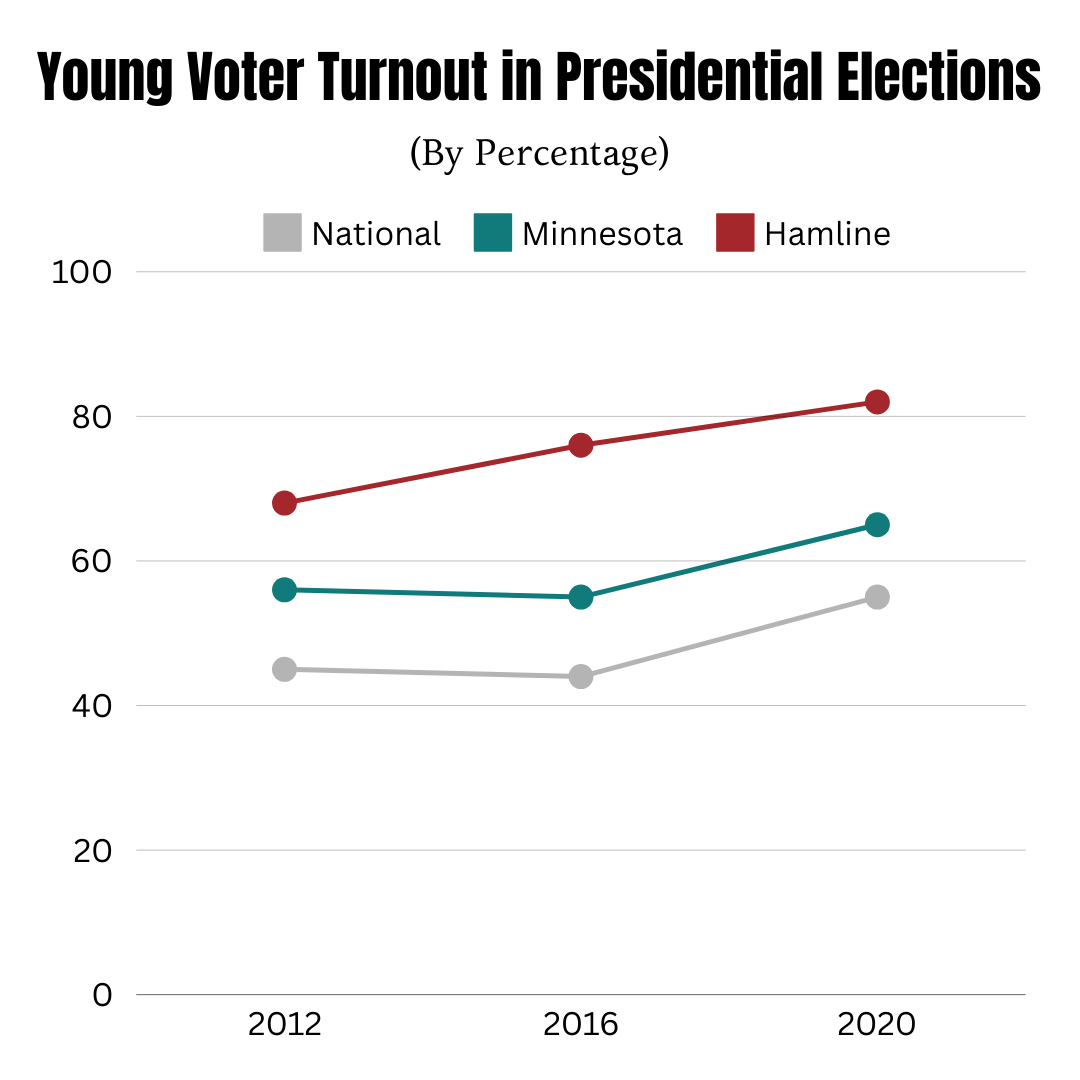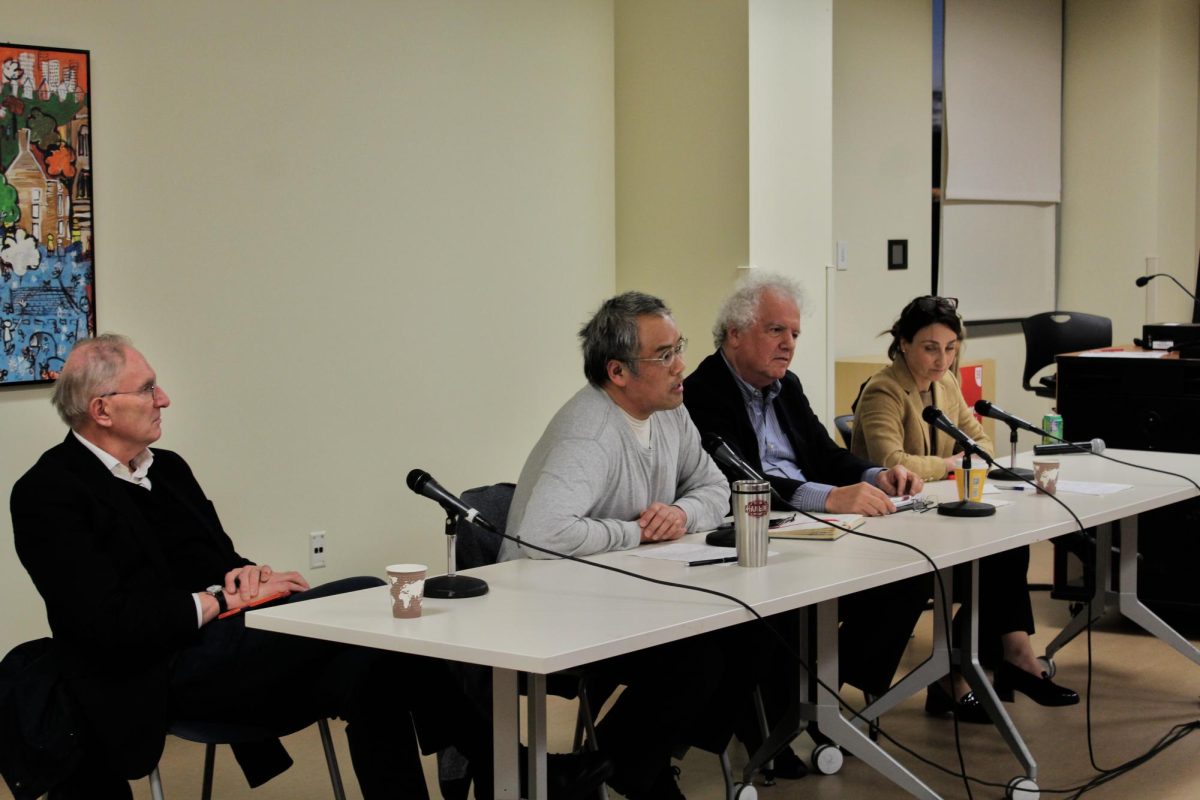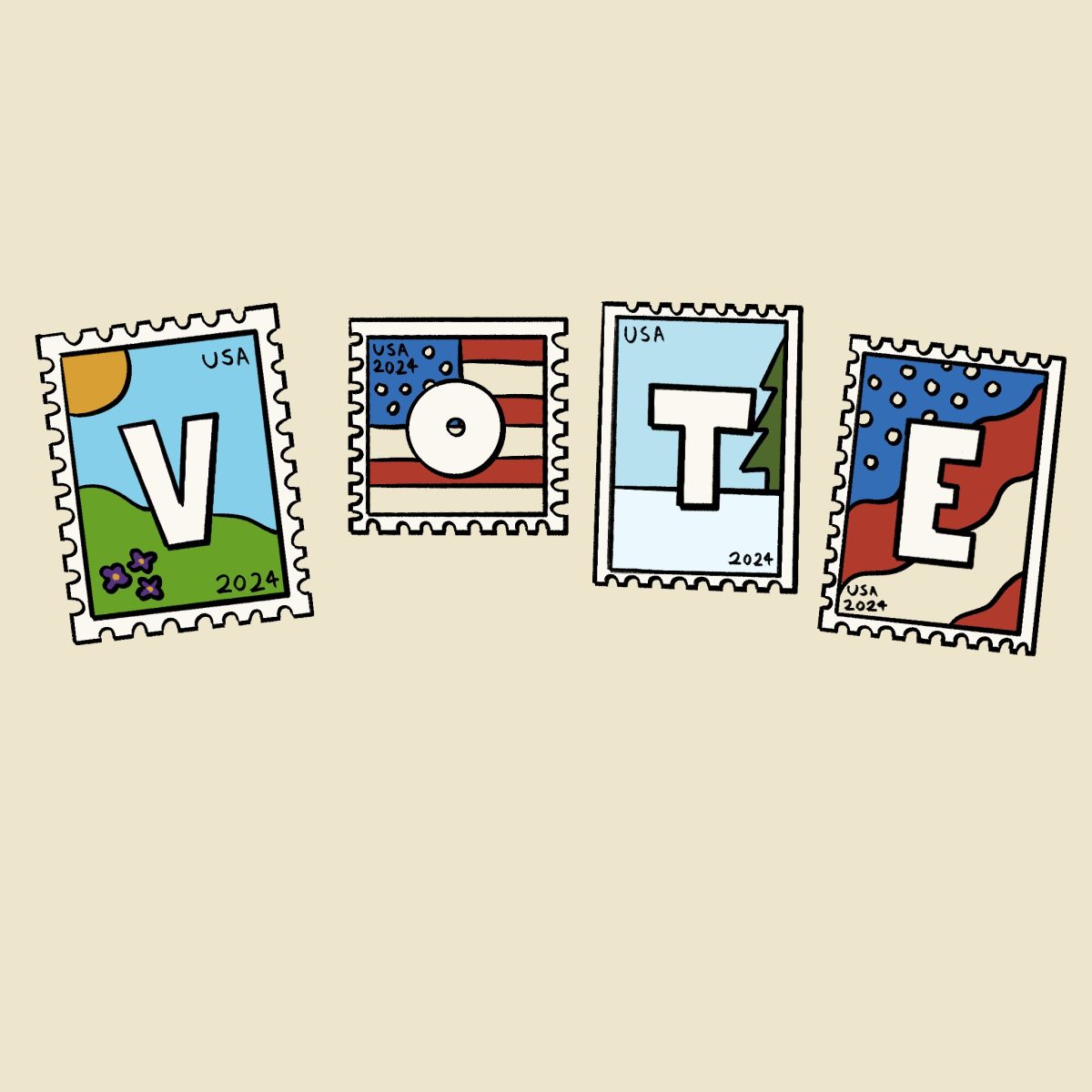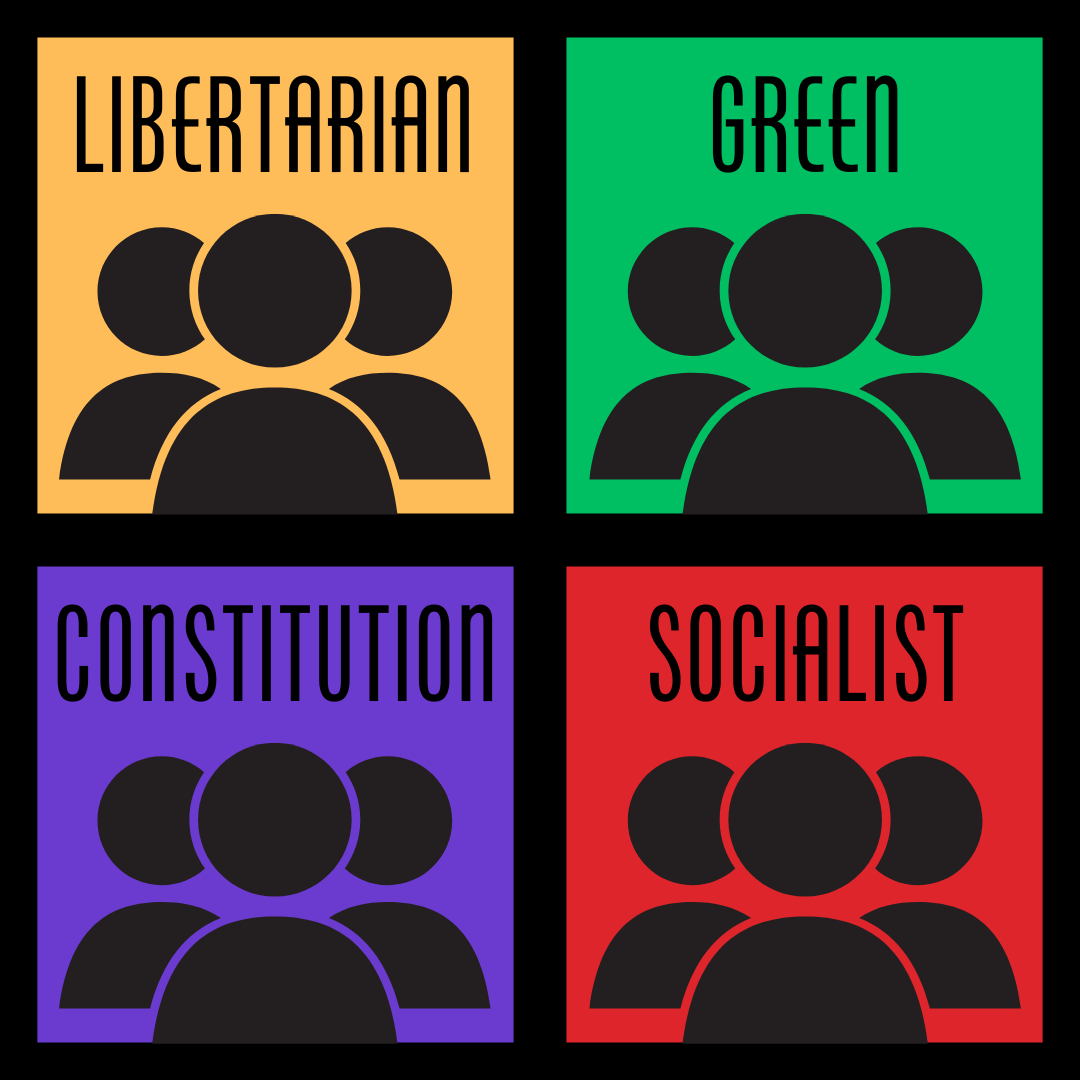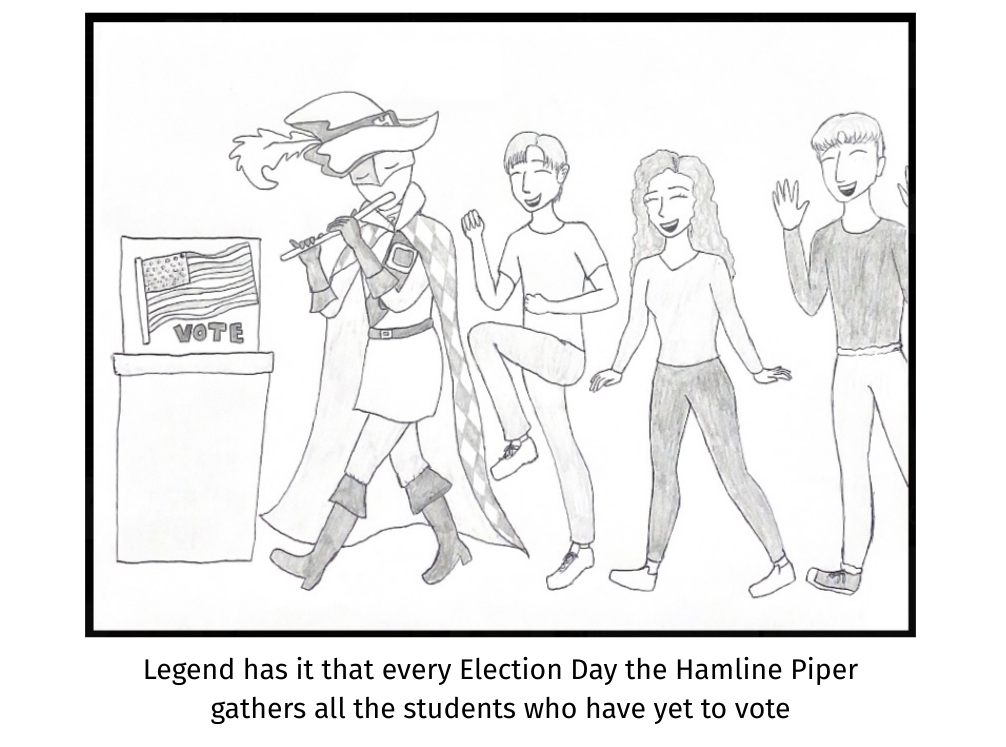In 2020, Hamline was among the top ten four-year private institutions in the country for voter turnout, with a record high of 82%. This year, sights are set higher: the goal is 90%.
Hamline has had an award-winning high turnout rate throughout previous years: in 2020, the ALL IN Campus Democracy Challenge awarded Hamline Platinum status for student participation, and they also listed the university amongst the top 10 in the country. Hamline Votes, a social justice program run by the Wesley Center, described the turnout effort on their webpage as reflecting “Hamline’s commitment to ensuring that nonpartisan democratic engagement is a defining feature of campus life.”
The high political engagement has extended to midterm elections when national rates typically drop below 50%. The 2018 midterms saw Hamline receive awards from the ALL IN Campus Democracy Challenge for the highest voting rate at a four–year private institution in the country, with a turnout of 63.3%. By contrast, only 28.2% of people aged 18-29 nationwide voted that year, according to the Center for Information and Research on Civic Learning and Engagement.
Hamline’s high turnout compared to national averages may be aided by the voting record in Minnesota as a whole. The state has led the nation in presidential elections since 2012, with a record-breaking 80% turnout in 2020. Voting laws, such as those that allow same-day registration and promotion of early and absentee voting, make voting in Minnesota much more accessible than in many other states. Seven out of the top ten four-year private institutions for voter turnout in 2022 were in Minnesota, including Macalester College and St. Olaf College.
Locally, initiatives on campus have been striving to motivate students to vote. Hamline Votes has kept the importance of voting in the minds of students through social media posts and signs around campus with their “Make Your Mark On Democracy” slogan. They have also worked to provide voting clear and accessible information and will be providing bus transportation to the polls on election day. These initiatives, detailed in Hamline Votes’ 2024 Action Plan, earned Hamline the “Highly Established Action Plan Award 2024” from ALL IN.
The Action Plan also discusses how civic engagement is embedded within Hamline’s values and activities. For example, the requirement for a Global Citizenship class in the Hamline Plan equips students to become socially responsible and address global issues and many student organizations advocate for social and political action.
Statistics from the National Study for Learning, Voting and Engagement (NSLVE) reports that during the 2020 election, Hamline saw an increase from 2016 across the board in voting rate, registration rate and voting rate of registered students, with the latter reaching 92%. With the university having previously managed to improve on already successful numbers, hopes are high for a new record to be set this election cycle.

